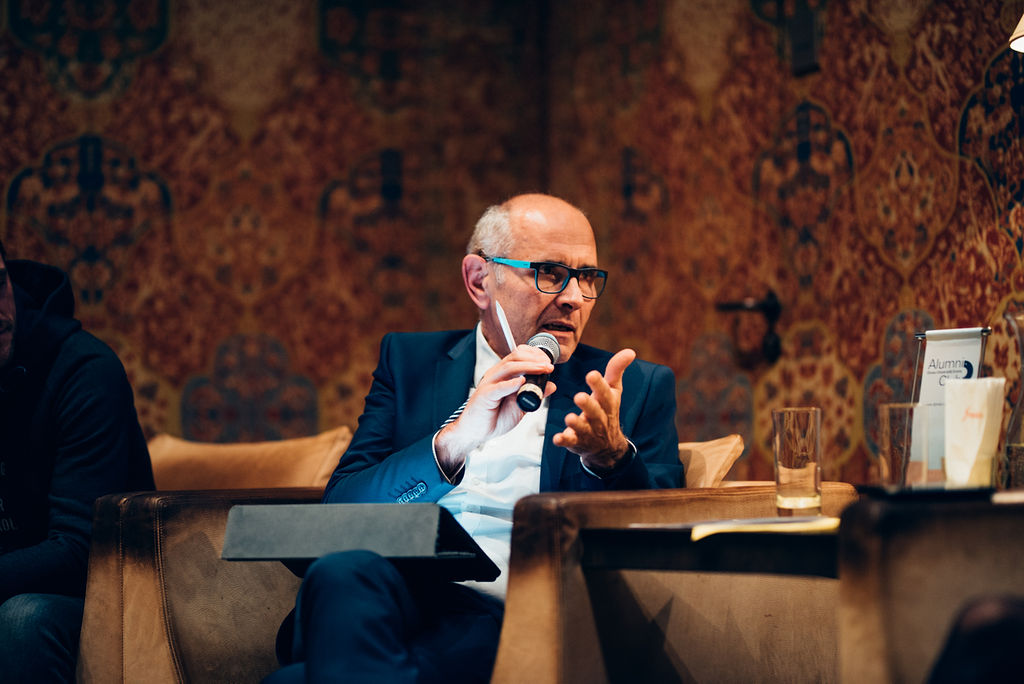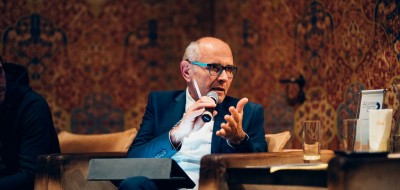In all probability, “leadership” will change fundamentally in the coming years. The first signs of this are already noticeable. There is hardly a congress that does not address hypocritical issues such as mindfulness, disruption, influencers, agile organization, etc. But this alone will not change anything. The real upheavals will take place in the technological environment, business models will change completely. The business of the future is “service”. For enterprises and generally for all organizations executives and coworkers will be able to secure the survival. Technology alone will not make it. Human intelligence is complemented by machines. Emotions, the need for social security and the meaning of life will become our topics. Therefore in the following some thoughts from my experience of many years as a managing director:
Unconditional wanting: With the MBA we have achieved what was planned. Many managers have thus become administrators who lead companies according to the rules of the management trade. The economic stability of companies has thus been sustainably improved. Risks can be better controlled. One could speak of enterprise engineering. What is largely lacking is entrepreneurship. This almost excludes itself with the risk management. Of course, managers must be able to use their tools of the trade, whether in the technical or social field. But this does not lead to any real change. The leaders of the future will be people who believe so firmly in their ideas that they put everything else on the back burner. It is absolutely necessary to “want”. In a world where there are others who always want something different.
Probability instead of security: In general language, the word “with security” has already evaporated. Most people have since realised that there is no such thing as security. This is particularly clear in the case of IT security. Even the best protection mechanisms are leveraged in the course of time. What is still considered secure today can be “hacked” tomorrow. Company founders and start-ups are often so firmly convinced of their ideas that they assume with certainty that the customer is buying. This security doesn’t exist either, as Apple has to feel on its flagship iPhone. Instead of security, there is now probability. Whether events occur or not, products can be sold, politicians can be elected, etc. can be proven with probabilities. With the help of statistics and machine learning, these are becoming more and more reliable. Consequently, a reliable probability would already be a high certainty.
Complexity brings stability: The concept of complexity is used for almost everything. These are in themselves events that have effects alongside, far away from, and time-shifted. In addition, they are subject to exponential growth. So much for the systemic explanation. In most cases complexity is perceived as something negative and in many cases we experience this on a daily basis. We worked a whole day and nothing went on. The immediate (self-)effectiveness becomes less and less due to the phenomenon described above. Nevertheless we are also effective in a complex world. This requires a wider horizon and above all time. The latter is the key element to deal with complexity.
The danger of digital overestimation and populism: everyone has already survived this. One only gets those messages through one’s own social media accounts that one unreservedly agrees with. In the meantime, the operators are in a position to record the personality profiles so precisely that you only get conformal information. This distorts the self-image and you always have the feeling that you are in the right place. “I’ve always said that.” Closely connected to this is the “popular”. Such currents are easy to support and you can surf on these pop waves without any special effort.
Service as some business model: Already today there is hardly a product, which can be sold without accompanying service. Customers want to buy these with products. At the same time have a carefree package. Such a thing is already common with automobiles, smart devices and hotel bookings. This pleasant experience is also required in other areas of life. Parents want full service in the education of their children, care in old age and treatment in case of illness. Service takes time, costs money and must be reflected in the business plan. The trend towards digitizing services is irreversible.
Iteration as a core process: Managers are paid to make the right decisions. Due to the omnipresent complexity, there is hardly any direct feedback on the effects of one’s own decisions. Hardly anyone dares to make big decisions anymore. A possible alternative is to make many small decisions. As soon as a deviation from the big goal is recognizable, one can still make corrections. Leaders therefore need two additional skills: vision and patience.
Confidence in the world as a whole: Yes – there is bad news every day. One time the stock market price falls, another time property prices rise and another time Donald Trump announces his next glory. If you get such news for a whole day, it can only lead to frustration and fear. But that’s not the way the world is. We live in a time of peace, health and prosperity. Not yet in the whole world, but we are on our way there. Surely there will always be setbacks. It is very important to distinguish between the virtual world (what politicians say) and the real world (what we experience). My most important life experience is trust in people and technology. A connection with the whole is certainly helpful.
https://www.donau-uni.ac.at/de/service/alumni/index.php




 Deutsch
Deutsch English
English